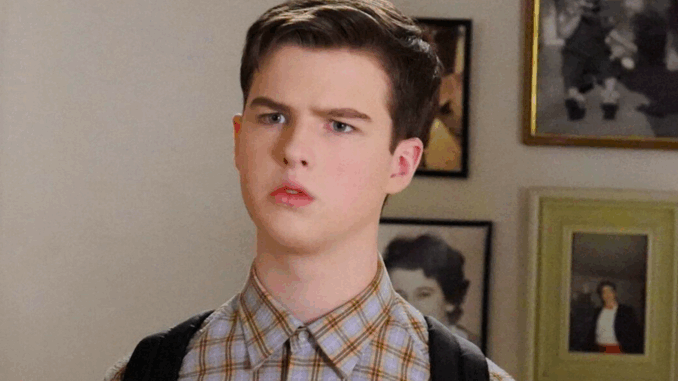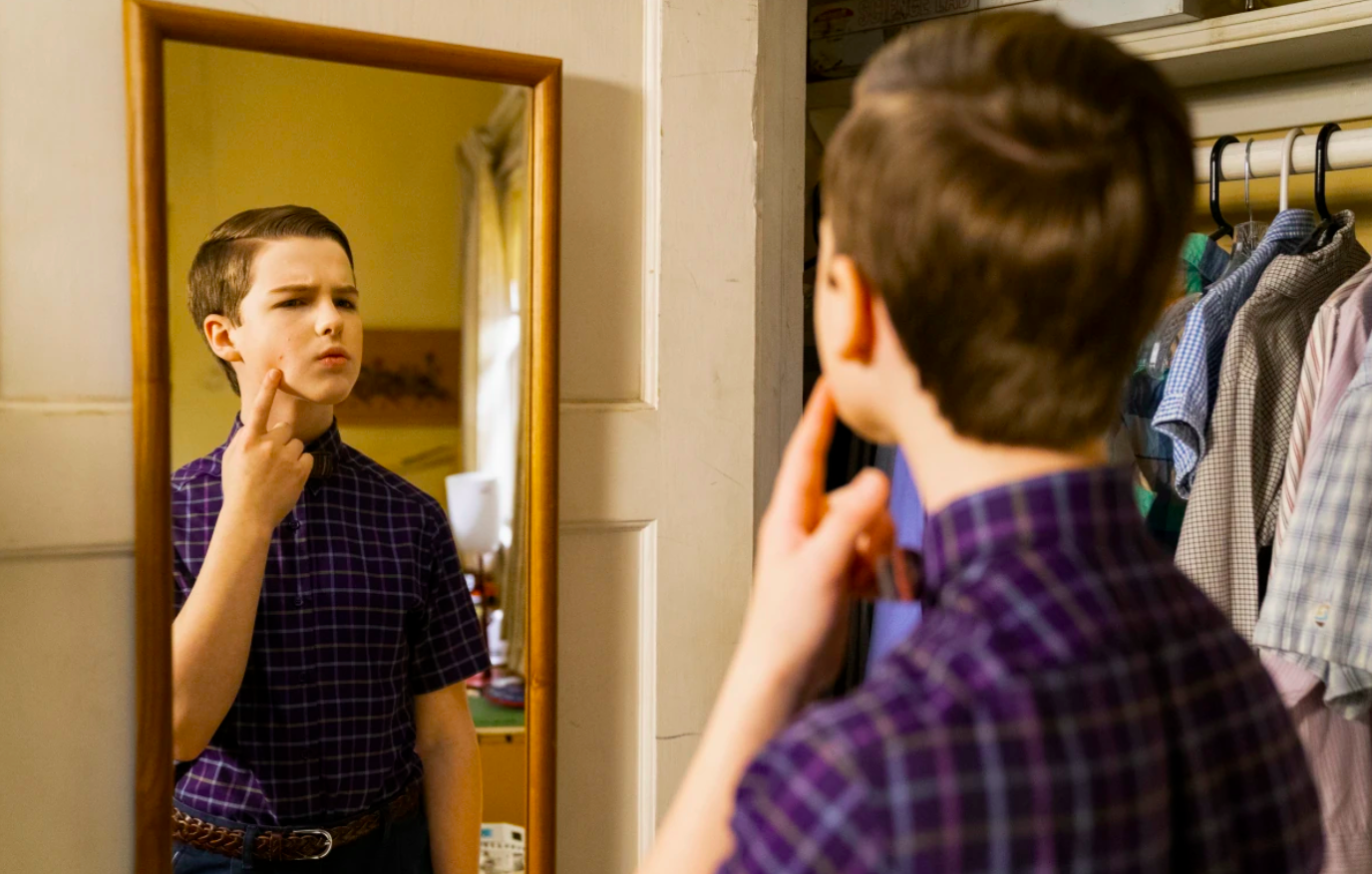
Sheldon Cooper, one of the most iconic characters on The Big Bang Theory, is best known for his brilliance in theoretical physics and his complete lack of social awareness. Played by Jim Parsons, Sheldon’s character is a marvel in many ways—his quirks, his sharp intellect, and his inability to understand the simplest social cues make him both a source of humor and a character of deep emotional growth. In this article, we will take a closer look at Sheldon’s unexpected journey towards improving his social skills and how his evolving relationships throughout the series contribute to his development.
The Sheldon We Meet: Brilliant but Clueless
When Sheldon first enters the scene, he is an insufferable genius who is completely out of touch with the emotional and social dynamics around him. His intelligence far surpasses those of his friends, but his inability to understand or empathize with others leaves him isolated and often alienates the people around him. Whether it’s his obsessive routines, his overuse of phrases like “Bazinga,” or his complete disregard for social niceties, Sheldon’s eccentricities create an unapproachable image for the other characters.
Sheldon’s social skills—or lack thereof—are often the source of much of the show’s humor. His inability to recognize when someone is joking, his insistence on rigid schedules, and his blunt remarks make him seem almost robotic. However, this rigidity is a defense mechanism for Sheldon, who struggles to understand the world beyond equations and theories.
Sheldon’s Relationship with Amy: The Catalyst for Change
While Sheldon’s social awkwardness remains central to his character in the early seasons, the introduction of Amy Farrah Fowler (Mayim Bialik) marks the first real catalyst for his personal growth. Amy, who shares Sheldon’s love of science, is initially portrayed as a female version of Sheldon—equally socially awkward but with a more emotional side. Their relationship starts as a friendship, but over time, it evolves into something much deeper.
Amy plays a pivotal role in Sheldon’s social development. Unlike his previous relationships, Amy doesn’t tolerate Sheldon’s behavior as a quirk that needs to be managed. Instead, she actively encourages Sheldon to open up, be more emotionally available, and participate in social situations outside of his comfort zone. Though Sheldon’s growth is slow and often painful, Amy’s influence gradually softens him, and the relationship provides Sheldon with the emotional tools to better navigate the complexities of human interactions.
The Role of Friendship: Learning to Share, Support, and Communicate
While Amy’s influence on Sheldon is significant, the friendships he shares with the rest of the group—Leonard, Howard, Raj, and Bernadette—are equally important in his social growth. Over the years, Sheldon learns that relationships require compromise, patience, and empathy, all of which are foreign concepts to him at the beginning of the series.
One of the standout moments in Sheldon’s social growth occurs in season 4 when Leonard gets frustrated with Sheldon’s inability to understand basic social cues. In a rare moment of vulnerability, Sheldon admits that he doesn’t know how to be a good friend, showing that beneath his condescending attitude, he is struggling with the same social challenges his friends face.
As Sheldon spends more time with his friends, he begins to pick up on their behaviors. The way Leonard, Howard, and Raj support one another, celebrate achievements, and provide emotional comfort becomes something that Sheldon internalizes. Though his initial attempts at empathy and communication are awkward, Sheldon’s growth is evident as he learns to listen, offer support, and, most importantly, understand when to share his own feelings.
Sheldon’s Fear of Change: The Struggle with Emotional Growth

Despite his progress, Sheldon is often resistant to change, especially when it comes to his emotions. One of the most compelling aspects of his character arc is his fear of vulnerability. His relationship with Amy, and later his marriage to her, highlights Sheldon’s struggle to reconcile his need for emotional intimacy with his fear of losing control. His constant battle between wanting to stay in his comfortable, structured world and wanting to connect with others is a central theme in his development.
In several key episodes, Sheldon goes to great lengths to avoid emotional conversations or changes in routine, even if it means pushing away those closest to him. However, as his relationship with Amy deepens, Sheldon slowly learns to embrace the discomfort that comes with emotional growth. Whether it’s confessing his love for Amy or confronting his own insecurities, Sheldon’s willingness to change—albeit reluctantly—marks one of the most important aspects of his journey.
The Big Moment: Sheldon’s Wedding and His Emotional Transformation
One of the most powerful moments in Sheldon’s emotional growth comes during his wedding to Amy in the season 11 finale. As the couple stands at the altar, Sheldon delivers a heartfelt speech, not just to Amy, but also to his friends and family. In a rare moment of vulnerability, Sheldon admits that he has changed because of the people he loves. This is a breakthrough for Sheldon, as he acknowledges that emotional growth is not something to fear, but something that brings him closer to the people who matter most.
The wedding episode serves as a culmination of Sheldon’s journey from an emotionally distant and socially oblivious individual to someone who is capable of love, empathy, and genuine emotional connection. His transformation is a testament to the power of relationships in shaping one’s ability to grow and evolve.
Sheldon’s Lasting Legacy: A Genius with Heart
By the end of The Big Bang Theory, Sheldon’s social skills have improved significantly, but his character remains true to his quirky, genius roots. While he may never fully grasp the subtleties of human interaction, Sheldon’s growth shows that change is possible, even for someone as seemingly set in his ways as he is. His evolution is a powerful reminder that emotional growth doesn’t have to come at the expense of one’s core identity.
Sheldon’s journey from a socially awkward, brilliant physicist to a loving husband and friend is one of the most rewarding character arcs in television history. His story teaches us that no matter how old we are, how successful we are, or how fixed our habits may seem, we can always learn, adapt, and become better versions of ourselves.
Conclusion: The End of an Era for Sheldon Cooper
Sheldon Cooper’s character arc in The Big Bang Theory is a rich and multifaceted one, full of comedic moments, touching growth, and surprising emotional depth. From his early years of social ineptitude to his final moments as a confident, emotionally intelligent individual, Sheldon’s journey mirrors the evolution that many people experience in their own lives. His transformation serves as a reminder that no one is ever too set in their ways to change, and that the people around us play a crucial role in that process.